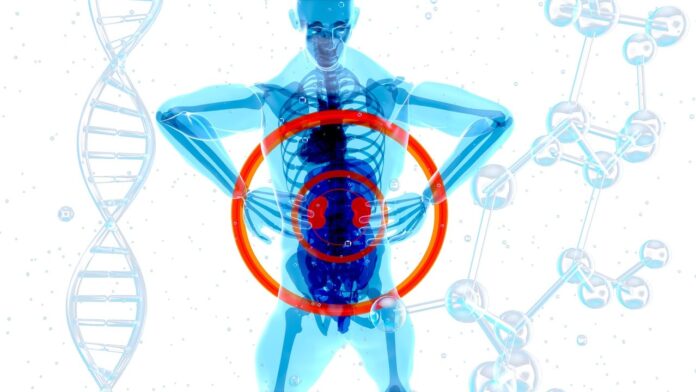Last Updated on October 26, 2024 by The Health Master
Kidney Stones
India, particularly the northern region known as the stone belt, is experiencing a significant rise in kidney stone cases.
The prevalence of kidney stones in North India is estimated to be between 10 to 15 percent.
In the digital age, information regarding various health issues, including kidney stones, is readily available on the internet.
However, it is crucial to assess the reliability and authenticity of this information. Relying on expert advice is essential to ensure accurate and safe health guidance.
International and national bodies, such as the American Urological Association, the European Association of Urology, and the Urological Society of India, have developed guidelines for urological problems, including kidney stones, based on extensive research and medical literature review.
Debunking Myths about Kidney Stones:
Myth 1: Consuming Milk and Milk Products Causes Kidney Stones Fact:
Contrary to popular belief, there is no scientific evidence suggesting that the consumption of milk and milk products increases the risk of kidney stones.
In fact, studies indicate that dairy products can reduce the likelihood of developing kidney stones.
Milk and its derivatives are rich in calcium, which binds to oxalate, a stone-forming molecule, in the intestines.
Consequently, the calcium and oxalate are excreted through the stool rather than being absorbed.
While oxalate is present in various foods like spinach, chocolate, black tea, nuts, and sweet potatoes, consuming dairy products aids in the proper absorption of oxalate.
Therefore, including milk and milk products in your diet can actually help reduce the risk of kidney stones.
Myth 2: Reducing Calcium Intake Prevents Kidney Stone Formation Fact:
The misconception that reducing calcium intake prevents kidney stone formation is unfounded. In reality, decreasing calcium consumption can lead to several health issues.
Calcium is essential for maintaining bone health and density. Insufficient daily calcium intake can weaken bones and contribute to reduced bone density.
Decreasing calcium intake does not reduce the risk of kidney stones; it only compromises overall bone strength.
It is advised that individuals consume 1 to 1.2 grams of calcium per day to ensure optimal health and minimize the risk of kidney stones.
Myth 3: Tomato and Other Seed-Containing Vegetables Cause Kidney Stones Fact:
Research has shown that oxalates, which are present in tomatoes and other seed-containing vegetables, do not contribute to the formation of kidney stones.
Oxalate is a chemical found in nearly all vegetables, making it unavoidable in our diets.
Moreover, when we consume fruits or vegetables with seeds, those seeds pass through our digestive system without being digested.
Similarly, the seeds of plants consumed by animals are dispersed through their feces, leading to new plant growth.
Chewing fruits and vegetables with small seeds does not result in a significant amount of oxalate, which is necessary for the formation of kidney stones.
Therefore, consuming tomatoes and other seed-containing vegetables actually reduces the risk of kidney stones.
Additional Myths and Truths:
- Drinking an adequate amount of water daily helps prevent kidney stones.
- Citrus fruits, such as lemons and oranges, can aid in preventing kidney stone formation.
- Limiting sodium intake is crucial for reducing the risk of kidney stones.
- Regular physical activity and exercise contribute to a lower likelihood of kidney stones.
- Certain medications, such as thiazide diuretics, can be prescribed to prevent kidney stone recurrence.
- Surgical intervention may be required for larger kidney stones that cannot be passed naturally.
Conclusion:
Being aware of the common myths surrounding kidney stones is essential for making informed decisions about prevention and treatment.
Scientific evidence contradicts many popular beliefs, such as milk and milk products causing kidney stones or reducing calcium intake to prevent stone formation.
By following accurate advice from trusted medical professionals and international guidelines, individuals can effectively manage and reduce the risk of kidney stones.
Emphasizing a well-rounded approach that includes a balanced diet, hydration, and regular exercise can play a significant role in maintaining kidney health.
Reviewed by: Dr. Nitin Srivastva, Urologist
Written by: Prins Bahadur Singh
Disclaimer: This article contains information derived from Only My Health. Our team utilized an AI language model, to rewrite and present the news in a unique format.
Health-Boosting these 7 types of Teas: A Nutritionist’s Guide
Hepatitis: इसके लक्षण, निदान और रोकथाम
This common BP drug may extend your lifespan, slow aging: Must Read
Gastroenteritis: What happens, know its symptoms, causes and prevention
Melanoma: What is this, what are its symptoms, causes and prevention: Let’s know
Vitamin F: What is Vitamin F? Why is it important for the body
5 side effects of cold drinks: Let’s know








